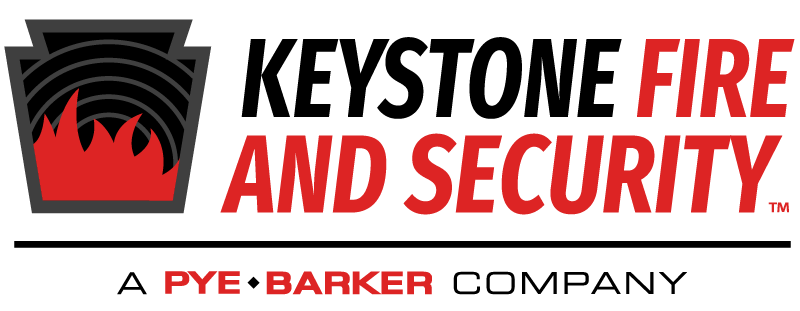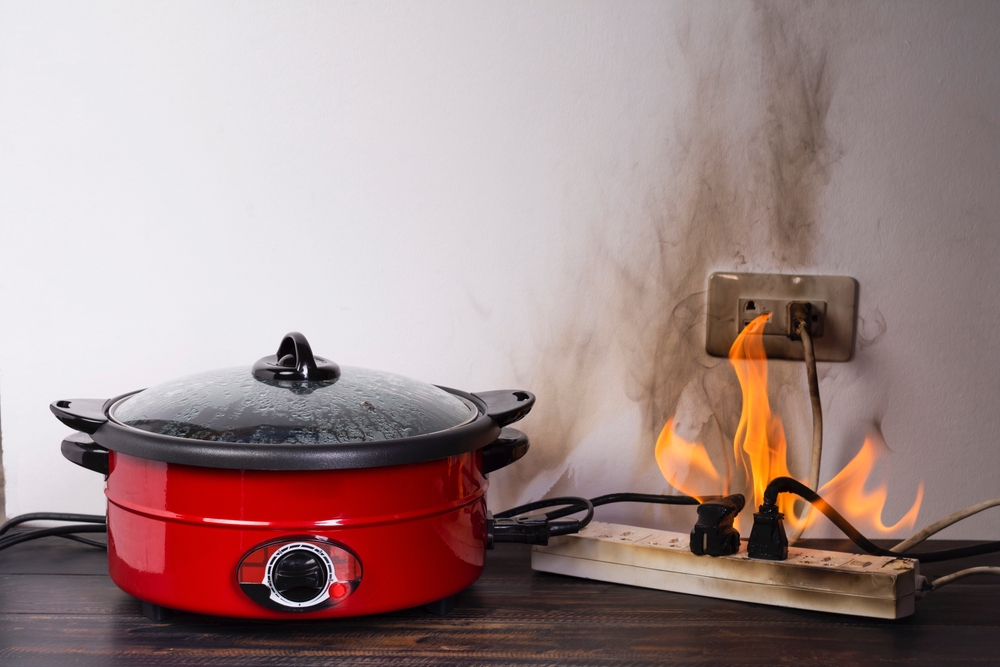Dealing with an electrical fire can be stressful, but being prepared can save lives and property. This blog covers typical causes, how to extinguish fires safely, and critical preventative measures to keep your house safe. Are you looking for trusted security experts in Bethlehem? Our access control specialists in Bethlehem, PA, can help you ensure your property’s safety.
What Causes Electrical Fires?
Preventing electrical fires requires an understanding of their underlying causes. These are a few typical issues:
- Bad Wiring: Damaged or aging wiring can overheat and catch fire. Regular inspections are essential because homes with antiquated systems are particularly vulnerable.
- Overloaded Circuits: Overheating may result from plugging too many gadgets into a single outlet or circuit. To prevent overloading, use power strips with surge protection.
- Appliance Damage: Appliances such as toasters and heaters with internal problems or frayed cords pose a fire risk. Replace broken appliances as soon as possible.
- Inappropriate Light Bulbs: Using lightbulbs with wattages higher than advised may result in overheating. Make sure that the bulbs have the right wattage.
Early resolution of these problems can greatly lower the risk of fire.
How To Put a Fire Out
The following actions can stop additional harm in the event of an electrical fire:
- Turn off the electricity: If it’s safe, unplug gadgets or turn off the electricity at the breaker box. This lowers the risk of electrocution and removes the fire’s fuel source.
- Use the Proper Extinguisher: Use an ABC or Class C fire extinguisher. Water carries electricity and can exacerbate electrical fires; thus, it should never be thrown on them.
- Smother Small Fires: If the power is off and the fire is contained, use baking soda or a thick, non-flammable blanket to put out small fires.
- Call for Assistance: In a major fire, dial 911 and leave immediately. Even after a minor fire, have a qualified electrician check your electrical system for possible problems.
Even after the fire has been out, you should always stay cautious. Electrical fires can re-ignite if the source of the problem is not resolved. Keep an eye out for smoke or sparks, and do not try to switch the power back on until an expert has evaluated the situation. Proactively fixing broken wiring, outlets, or overloaded circuits can also help to avoid similar mishaps.
Electrical Fire Prevention Tips
The best defense against electrical fires is prevention. Use these tips to keep your house safe:
- Plan Frequent Inspections: A qualified electrician inspects your circuit panels, outlets, and wiring.
- Upkeep of Appliances: Replace broken wires and appliances right away. Unplug any devices that aren’t in use and refrain from overloading sockets.
- Install Safety Devices: Install arc-fault circuit interrupters (AFCIs) and smoke detectors in your house. Replace batteries when necessary and test detectors once a month.
Electrical fire prevention begins with routine maintenance and safety measures. Arrange recurring professional inspections by an experienced electrician to determine and rectify problems such as old wiring, overloaded circuits, or defective receptacles. Use surge protectors, and do not overload power strips or extension cords. Do not use any appliance or electronics with frayed or damaged cords; always follow their manufacturer’s instructions.
Fitting smoke detectors in strategic locations, such as in the vicinity of sleeping areas and kitchens, may provide an early warning of potential fires. Furthermore, ensure that your home has the necessary number of fire extinguishers and that everyone knows how to operate them. By practicing electrical safety and avoiding recognized hazards as much as possible, you can significantly reduce the risk of electrical fires in your home.
Even though electrical fires are dangerous, they can be controlled with planning and attention to detail. Your house, family, and peace of mind are all protected when you know how to avoid and deal with them securely. Contact us today for more information.


